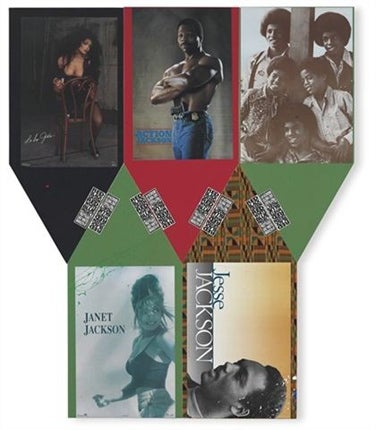Tate Modern to stage 'racist' exhibition
London gallery re-enacts controversial 'celebration' of black American stars

Your support helps us to tell the story
From reproductive rights to climate change to Big Tech, The Independent is on the ground when the story is developing. Whether it's investigating the financials of Elon Musk's pro-Trump PAC or producing our latest documentary, 'The A Word', which shines a light on the American women fighting for reproductive rights, we know how important it is to parse out the facts from the messaging.
At such a critical moment in US history, we need reporters on the ground. Your donation allows us to keep sending journalists to speak to both sides of the story.
The Independent is trusted by Americans across the entire political spectrum. And unlike many other quality news outlets, we choose not to lock Americans out of our reporting and analysis with paywalls. We believe quality journalism should be available to everyone, paid for by those who can afford it.
Your support makes all the difference.Tate Modern is to recreate an exhibition universally condemned as racist by critics when it was in New York. When the artistic duo, Rob Pruitt and Jack Early, opened the show, Red, Black, Green, Red, White and Blue, consisting of shop-bought posters of black pop-stars, sports personalities and activists, they intended it as a celebration of African Americans, as well as a critique.
But the work in the Leo Castelli gallery in 1992 led to an explosive response by critics, virtually ending Early's career, and putting a stop to Pruitt's for the next seven years, as galleries refused to show any of his work. Early now lives in a low-rent hotel and works in catering. The pair had teamed up after they met in their early 20s while studying art at the Corcoran School in Washington, DC.
Tate Modern will re-enact the show in an entire room as part of its major exhibition, Pop Life: Art in a Material World, opening on 1 October, which explores the New York arts scene and its links with the YBAs.
Pruitt and Early intended to address popular conceptions of race in corporate America and the show was overlain with a soundtrack of Pruitt and Early singing their own rap song.
"It was our take on black pop culture in America, a historical survey, images that had risen to the top of American culture that created a rich, popular identity of what the black experience had been through adversity," Pruitt said. "Through this adversity, they had been able to do genius things."
Each poster featured politicians, athletes and entertainers, including the singer, LL Cool J, the actress Whoopie Goldberg, the black activist, Malcolm X, and the Jackson family. Each poster was on a house-shaped panel, and given names such as The Jackson Family House. "We put all of the Jacksons together," Pruitt added. "It was about having your identity taken from you [and having a], slave name tagged in," he said.
Some people voiced concern at an exhibition about black America created by two young white men. The condemnation back then "was pretty unanimous" said Pruitt. "People were calling the show racist. That was particularly shocking to me.
"I read every review carefully. The celebration of the group of people and community was not lost but what people did not like was mixing people together who had nothing in common other than the colour of their skin." Alison Gingeras, co-curator of Tate Modern's exhibition, said the work had since been critically re-examined and she hoped it would be appreciated as the cultural critique that it was intended to be.
"Its dismissal at the time was a bit knee-jerk," she said. "I can understand why the show was met by an inflammatory response but what got lost in the shuffle was that Pruitt-Early didn't invent this imagery.
"If these were racial stereotypes, they were playing on that, and offering a critique. They were forcing us to confront what we sanction every time we buy these posters, records and films that play on racial stereotypes. I think that 17 years later, the public will be able to digest them in a less of a knee-jerk manner."
In spite of the critical reception, every artwork was bought, including some pieces by Denver Museum. The publicity also ensured that the Pruitt-Early name would not be easily forgotten. Pruitt has since regained his reputation in the art world. Two years ago, he contributed artwork at the Frieze Fair in London.
Join our commenting forum
Join thought-provoking conversations, follow other Independent readers and see their replies
Comments